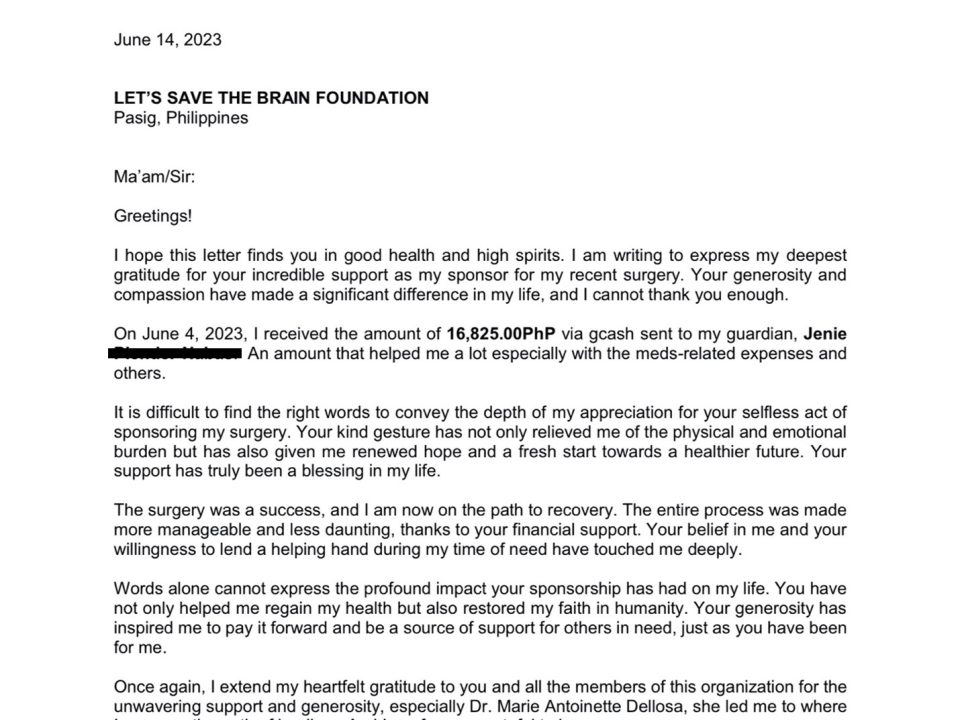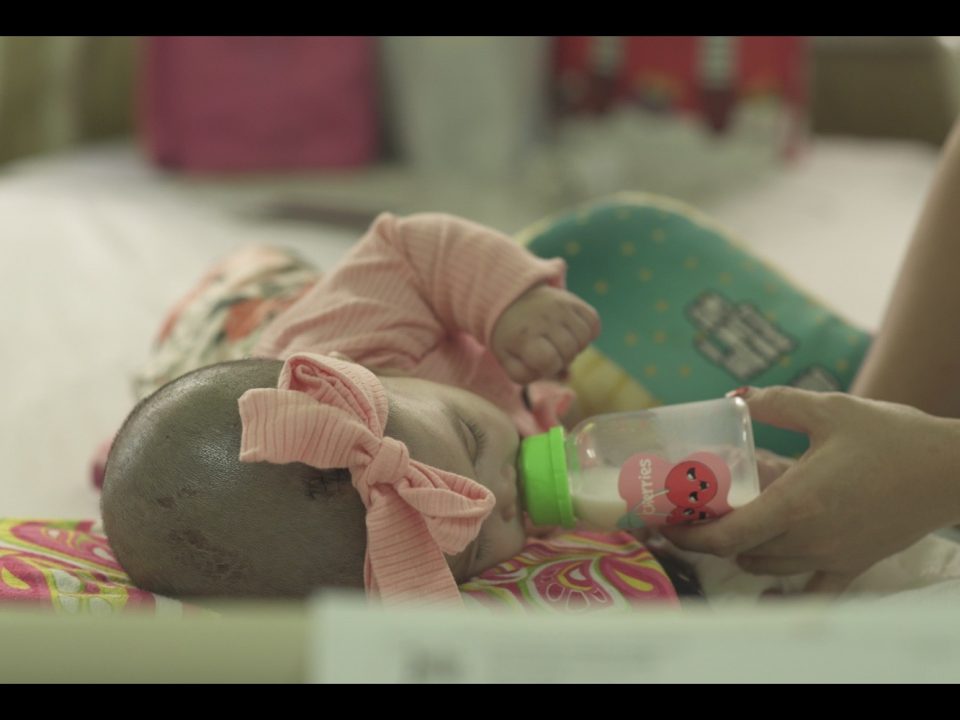Baby Felisa (not her real name) is a little warrior from Zamboanga whose remarkable journey illustrates the power of timely medical intervention. During her mother’s pregnancy, there were concerns such as hypertension and gestational diabetes, which were effectively managed. The prenatal ultrasound appeared normal, though a detailed, congenital anomaly scan was not performed, leaving the family unaware of what awaited them.
When Felisa was born via Cesarean section, the unexplicated discovery of a lipomyelomeningocele —a congenital defect affecting the spine – marked the beginning of her battles. This condition arises when the spinal cord and its surrounding structures fail to close correctly during fetal development. In Felisa’s case, a fatty mass was found attached to her spinal cord, increasing the risk of tethering, nerve damage, and ensuing functional complications.
At just one month old, Felisa underwent an MRI that confirmed the diagnosis of spina bifida. revealing neural elements extruding from her spine but still protected by skin. Plans for surgery were set for when she turned two months; however, financial limitations hindered immediate care.
As the sacral mass began to grow, Baby Felisa’s situation became increasingly urgent. Dr. Bernadette Chua-Macrohon, her dedicated child neurologist in Zamboanga and alumna of the prestigious UP-PGH Department of Neurosciences, recognized the need for a specialized intervention. When Felisa reached six months of age, she was referred to the Division of Neurosurgery at PGH for further evaluation.
Upon examination at PGH, a lumbosacral mass measuring 6 x 6 cm was identified, exhibiting a soft consistency, dimpling, but notably no signs of discharge or hair tufting. This detailed assessment subsequently set the stage for her surgical intervention.
In June, Baby Felisa underwent a successful operation to repair the lipomyelomeningocele and perform cord detethering. This critical and timely operation successfully averted potential complications and laid the groundwork for her to develop normally, allowing her to thrive without the shadow of her early condition.
Today, Baby Felisa stands as a testament to the importance of early diagnosis and surgical intervention in managing congenital conditions. Hers is a story not just of healthcare challenges, but of resilience, hope, and the profound impact of dedicated healthcare professionals who advocate for their patients. Felisa’s future is bright, and while she may not remember her early struggles, her journey shines a light on the path of possibility that timely medical attention can create.
A Story: It took a village …
On May 18, 2023, we received a frantic message on our Facebook page from a friend of BJ (not his real name), a 35-year-old male diagnosed with Brown-Sequard Syndrome, a condition where one experiences generalized weakness due to a benign tumor in the spine. The surgeon BJ consulted said the materials needed for the operation would cost PhP 350,000! BJ …
Find Out More
Emerson
A FAMILY’S HERO Every day, Emerson gets up early to gather his merchandise and leave the house, hoping to make some money for his family. He works as a vendor, enduring the heat of the sun and the pouring of rain, eager to make ends meet for his four children. Emerson knows that he can’t stop working even for a …
Find Out More
Baby Smile
A STORY BEHIND A MOTHER’S SMILE She was glowing. Her pregnancy was a walk in the park. Every prenatal checkup added to her excitement of meeting her baby whom she named Smile – the name she chose to capture the joy that her pregnancy brought her. Everything was going great, until she got the result of her ultrasound. It showed …
Find Out More



